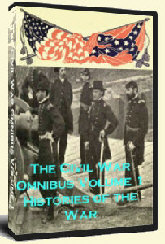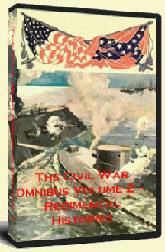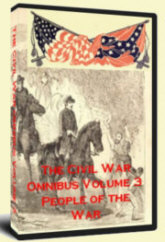If all the pieces had fallen into place, it could have changed the political landscape of American history, if not the world. If the plan would have worked, it could have been one of the most complete political coups in history.
While the assassination of Abraham Lincoln is one of the best known events in American history, it was only one part of a larger plan by John Wilkes Booth that has been largely forgotten, a plan to overthrow the United States government and give the defeated Confederacy the opportunity to shore up their resources and possibly win a war that had already for all intents and purposes ended. Read the rest of this entry »
Comments Off on The Conspiracy
The supporters of the Confederacy found the post-Civil War South a hostile environment indeed. For those of the planter class, the bottom rail was on top. Most were financially ruined by the war. The slaves on whom they had depended to work their land were gone, or, if they stayed, now had the right to be paid wages. Others had no need to worry about slaves to work their properties, because their properties had been seized by the Federal government or lost to creditors. For the men who had served in the Confederate Army as officers, their rights as citizens were stripped.
It is not surprising, then, that as many as 4,000-9,000 of these disenfranchised Southerners took Emperor Dom Pedro II of Brazil up on his offer to relocate to Brazil and cultivate cotton there, and despite being advised by no less than General Robert E. Lee himself against it, set out for South American in search of what they’d lost to the war. Read the rest of this entry »
Comments Off on The Confederados
Feeling that the war was nearing its end, I desired my cavalry to be in at the death.Sheridan on his desire to rejoin the Army of the Potomac
With both Jubal Early and most of the civilians in the Shenandoah Valley still choking on the smoke of “The Burning,” General Philip Henry Sheridan, sensing that the tide of the war was turning toward the destruction of Robert E. Lee and the Army of Northern Virginia, took his men to Petersburg, rejoining the Army of the Potomac. Once again the Army of the Potomac would bask in the glory of “Little Phil,” as it was during this stint with the Army of the Potomac that Sheridan’s reputation as a hero was secured, as he managed to bring down not only Jubal Early’s men, but Lee and the Army of Northern Virginia, as well.
Sheridan wasted no time resting on his Winchester laurels as he ventured to Petersburg. At the Battle of Waynesboro, he forced 1,500 of Early’s men to surrender. Less than month later, he forced Lee to flee Petersburg. Only days later, at the Battle of Sayler’s Creek, Sheridan dealt Lee a final, crushing blow by capturing almost a quarter of his remaining men. Read the rest of this entry »
Comments Off on “Worth His Weight in Gold:” Philip Henry Sheridan – pt. 2
A brown, chunky little chap, with a long body, short legs, not enough neck to hang him, and such long arms that if his ankles itch he can scratch them without stooping.Abraham Lincoln, describing Philip Henry Sheridan
Philip Henry Sheridan, or “Little Phil” as the 5 feet 5 inch tall officer came to be known, came out of relative obscurity toward the end of the Civil War to become one of the heroes of the Union effort. Succeeding where many older and more distinguished men had failed, Sheridan was able to assist in rousing the long-suffering Army of the Potomac into action and help General Ulysses S. Grant to defeat General Robert E. Lee and the Confederate Army of Northern Virginia.
Born in New York to Irish immigrant parents, Philip Henry Sheridan grew up in Ohio. In 1848, he began his military career at West Point. His years at West Point were not without controversy; during his third year, Sheridan was suspended for fighting with a classmate whom he’d previously threatened to bayonet. This scuffle, the result of some real or perceived insult to Sheridan, resulted in delaying his graduation by a year. He left West Point in 1853, graduating 34th of 52 cadets. Read the rest of this entry »
Comments Off on “Worth His Weight in Gold:” Philip Henry Sheridan – pt. 1
The divisions in American that resulted in the Civil War were hardly drawn at the Mason-Dixon line. While divisive opinions about slavery abounded throughout the United States, and to an extent the Confederacy, the issue of secession caused more disagreement throughout the South than slavery did. For these “Unionists,” as they became known, whether or not slavery was constitutionally mandated was beside the point – once a part of the United States, there was no turning back, no secession.
Although support for a nascent Confederacy was strong in many of the Southern states during the Secession Crisis of 1860-1861, this support was hardly unanimous. A significant number of Southerners felt that secession was either illegal or unnecessary, of this number, there were those who felt that secession would never truly come to fruition. Others still, those who did not own slaves or perhaps did not support the institution of slavery, were opposed to secession from the Union on the grounds that the inevitable outcome would be a “rich man’s war and a poor man’s fight.” Read the rest of this entry »
Comments Off on The “Lost” State of Nickajack


